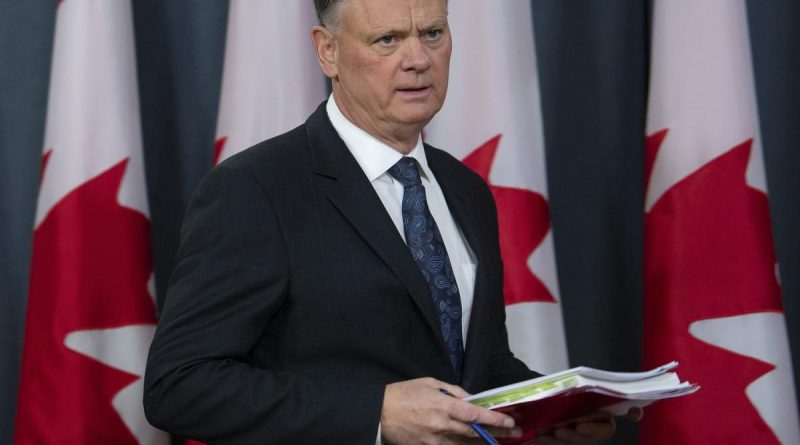Canadians in the Dark on Military Intelligence?
A new parliamentary report sheds light on Canada’s virtually-unknown military intelligence service.
Key Actors:
- National Security and Intelligence Committee of Parliamentarians (NSICOP) – responsible for reviewing security and intelligence issues; headed by Liberal Member of Parliament David McGuinty
- Military Intelligence Branch of Canadian Armed Forces – headed by intelligence chief Rear-Admiral Scott Bishop
On April 9th, Canada’s parliament was shown the first-ever report on Canada’s military intelligence forces. The report, produced by the National Security and Intelligence Committee of Parliamentarians (NSICOP), detailed a few things, including threats to Canadian security and an evaluation of Canada’s intelligence priorities. The report’s most notable section, however, was its review of a little-known and little-supervised organisation: the Intelligence Branch of the Canadian Armed Forces (CAF).
What is the Intelligence Branch?
The Intelligence Branch is the organisation within the CAF that provides military commanders with information to plan operations. These range from foreign missions in Afghanistan and former Yugoslavia to domestic military operations such as wildfire-fighting in BC. The Intelligence Branch’s work is similar to that of Canada’s RCMP and other spy agencies, such as CSIS and CSE. The main difference is that, due to the military nature of the Intelligence Branch, it is not held to the same oversight and standards as other organisations; as a branch of the military, a concept known as “Crown Prerogative” guarantees it the authority to conduct any necessary operations without legislative approval.
However, the Intelligence Branch’s reign is not unlimited. It needs to report to higher-ups in the military chain of command by proving that its operations are, in fact, related to military objectives while also being subject to evaluation by the Department of National Defense’s (DND) internal review system. However, Canada’s Parliament is blind to the actions of the Intelligence Branch, prompting previously-unasked questions about what really goes on in one of Canada’s largest intelligence services.
What’s in the Report?
The NSICOP, the organisation which released the Annual Report, is a multi-party oversight committee formed in 2017 and tasked with reviewing Canada’s security and intelligence services. After a brief mention of military intelligence in its first report last December, the committee released this new, detailed report after hundreds of hours of meetings and sifting through thousands of documents.
The 121-page report found that the Intelligence Branch lacked the supervision and accountability to Parliament and to Canadian citizens that other organisations were required to have. In an interview with CBC, the Chair of the committee, Liberal Member of Parliament David McGuinty, stated that Canadians are “in the dark” about the institutions and threats involved in keeping Canada safe through intelligence operations. Some are worried that the Intelligence Branch is spying on Canadians, but the committee found no evidence of any wrongdoing.
The report advised the Liberal government to “seriously consider” reviewing its policy on the Intelligence Branch. Though no formal recommendations were made, it suggested amending Bill C-59, which currently sits in Senate awaiting approval. This new security and intelligence bill is designed to replace the previous government’s anti-terrorism Bill C-51 and adds new oversight mechanisms to Canada’s civilian spy agencies. The committee recommends implementing similar oversights for the Intelligence Branch through Bill C-59, thus placing it under legislative surveillance.
The CAF, however, is reluctant to be leashed to parliamentary oversight. Rear-Admiral Scott Bishop, the chief of the Intelligence Branch, agrees with the report’s statement that the Intelligence Branch’s flexibility and efficiency would be limited if placed under parliamentary supervision. He also points out that the majority of intelligence operations are conducted outside of Canada alongside military operations; intelligence gathered in Canada is usually already at the behest of other well-supervised agencies like the RCMP and must be handed over at their request.
Regardless of whether illegal actions are being conducted by the Intelligence Branch, the report has made it clear that more oversight would be beneficial in keeping Canadians informed on their country’s military intelligence. The committee has promised to release a deeper, more detailed special report on this topic in the coming months. So far, not much of a reaction has been heard in the halls of Parliament. Whether enough support would be garnered by another report to overhaul Canada’s military intelligence system remains to be seen.
Bibliography
Brewster, Murray. “A Parliamentary Committee Is Set to Shine a Light on the Shadowy Business of Military Intelligence | CBC News.” CBC, 8 Apr. 2019, https://www.cbc.ca/news/politics/military-intelligence-canada-parliamentary-committee-1.5087547.
—. “DND’s Intelligence Operations Questioned by MPs | CBC News.” CBC, 10 Apr. 2019, https://www.cbc.ca/news/politics/secueity-report-military-1.5090410.
—. “Military Intelligence Conducts ‘very Limited’ Activity within Canada, Spy Chief Says | CBC News.” CBC, 11 Apr. 2019, https://www.cbc.ca/news/politics/military-intelligence-officer-parliament-report-1.5092891.
Tabling of the 2018 Annual Report of the National Security and Intelligence Committee of Parliamentarians. http://www.nsicop-cpsnr.ca/press-releases/pr-cp-2019-04-09/pr-cp-2019-04-09-en.html. Accessed 16 Apr. 2019.
“Ten Things You Need to Know About Bill C-59.” Canadian Civil Liberties Association, 12 Sept. 2017, https://ccla.org/ten-things-need-know-bill-c-59/.
National Security and Intelligence Committee of Parliamentarians. Annual Report 2018. 9 Apr. 2019, p. 121, http://www.nsicop-cpsnr.ca/reports/rp-2019-04-09/2019-04-09_annual_report_2018_public_en.pdf.

